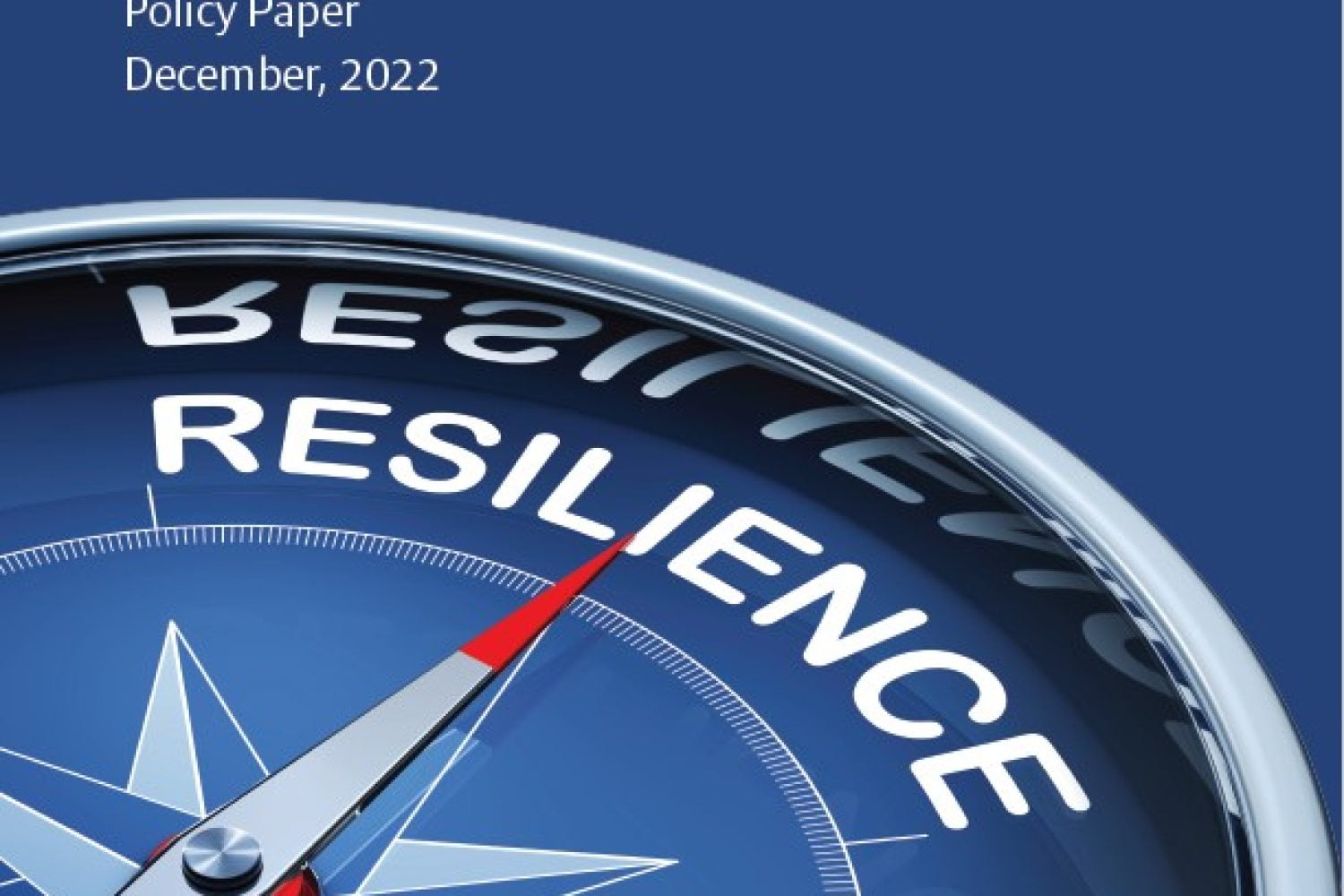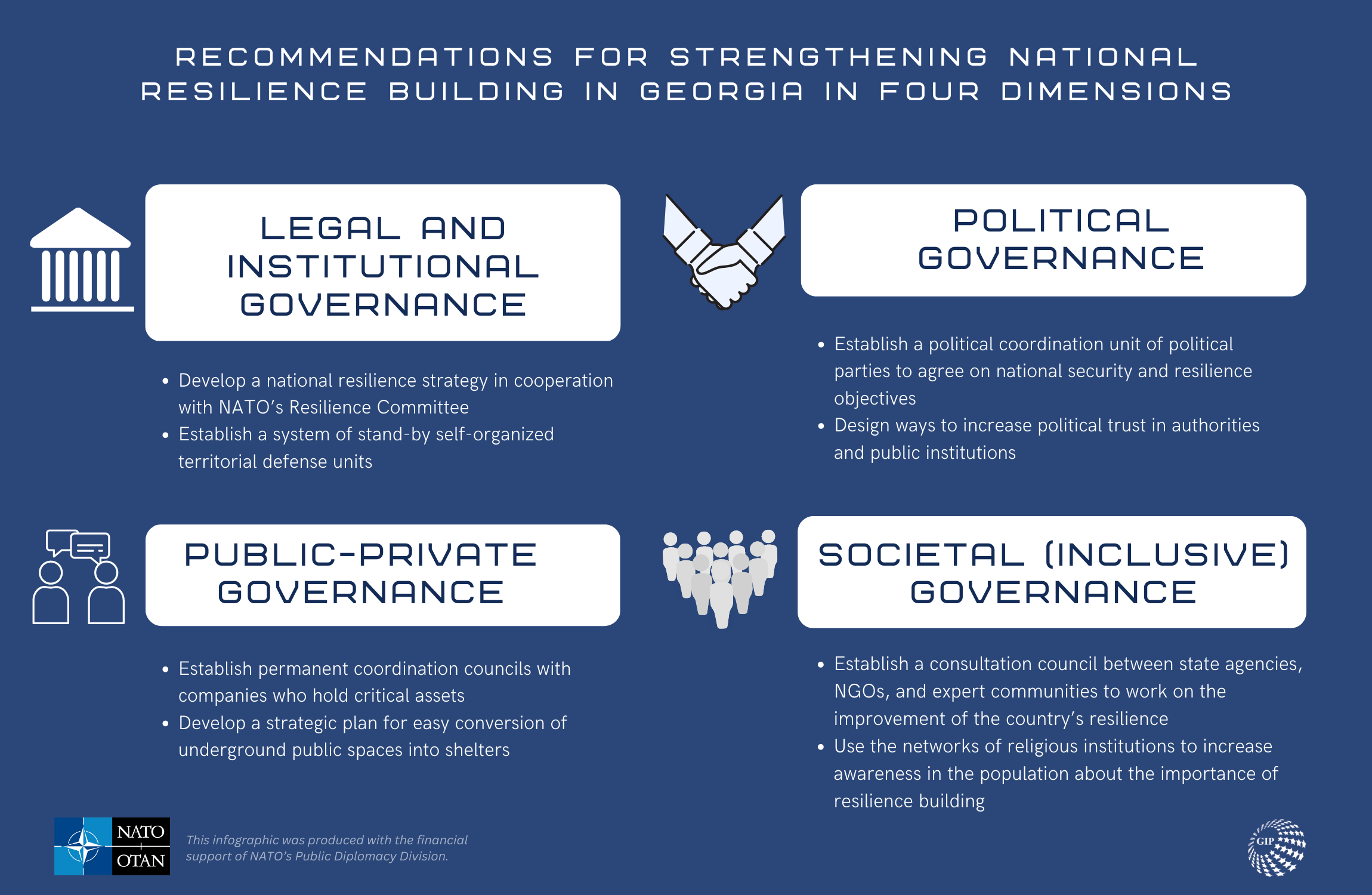2022-12-02 08:37:02
This policy paper provides some thoughts on how a national resilience-building process should be organized in Georgia and what the Black Sea country can learn from NATO and its member states. Based on extensive desk research and focus groups with Georgian security experts, it is argued that Georgia requires a comprehensive cross-sector resilience strategy based on a whole-of-society approach. A review of best practices from NATO and EU states and Georgian expert opinion has enabled us to identify four dimensions as important ingredients of resilience-building: institutional/legal, societal, political and public-private. The institutional and legal dimension to resilience-building implies the streamlining of strategic documents and legislation, as well as improved public governance and inter-agency coordination. The political dimension refers to fixing vulnerabilities in the Georgian political system such as low political trust, polarization, radicalization and bad governance practices. The societal dimension implies extending the ownership of resilience-building to include all societal groups to ensure that the whole population is involved in the process of resilience-building. It also involves increasing social trust and psychological resilience among citizens. Finally, public-private partnership refers to extending the ownership of resilience-building to the private sector which often owns a significant share of critical infrastructure and are key to the uninterrupted functioning of public services and society as a whole. Developing a high degree of resilience will not only help Georgia protect itself from present and future crises and conflicts but will also contribute to Tbilisi’s Euro-Atlantic integration prospects as it will turn Georgia into a more predictable and desirable partner.
Key words: National Resilience, Georgia, NATO Resilience Baselines, Risks







